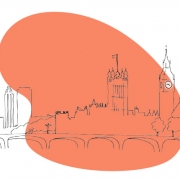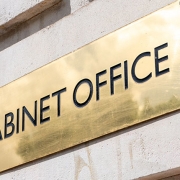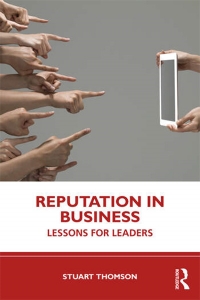Public Finances
The recession is now expected to be more shallow, with all but one of the independent forecasters surveyed by HM Treasury in February, as well as the Bank of England, now expecting a smaller contraction of the UK’s economic output in 2023 than under the Office for Budget Responsibility’s (OBR) November forecast.
Public finances continue to outperform expectations in the lead up to Spring Budget. Public borrowing looks to be about £30bn lower this year than forecast by the OBR as recently as November. This is due to various factors, including:
- Lower energy prices; Thanks to lower international gas prices, the Treasury is benefitting from a reduced cost of its energy support programme. In mid-November, the Treasury said it expected the total cost of support to be £37.6bn. But with gas prices having plunged since then, analysts at Cornwall Insight and the Institute for Fiscal Studies (IFS) said they now expect the final figure to be roughly £11bn lower, or around £26bn.
- Stronger-than-expected tax revenues; The Office for National Statistics (ONS) revealed the Government received £5.4bn more in taxes than it spent on public services. This was £7.1bn lower than a year earlier but £5bn higher than the OBR forecast. The main cause of the better performance was the strength of tax revenues; self-assessment income tax revenues were particularly strong in January, rising 33% year-on-year.
However, according to the IFS, ‘with £6bn very likely to be spent on freezing fuel duties, this would still leave borrowing around £115bn. While this would be around £25bn less than expected in November, it would still be more than £60bn above that forecast in the March 2022 Spring Statement.’
Moreover, despite less borrowing, the Resolution Foundation said the Chancellor will still face ‘tough choices’ in delivering his Budget next week, as he will be forced to deal with the combined problems of the UK’s cost of living crisis, countrywide labour shortages and public sector strikes.
Business and Trade
In the Autumn Statement, the Chancellor announced several measures which are expected to squeeze taxpayers from April. Since then, there have been calls from Conservative MPs to set out plans for future tax cuts, especially given signs that the recession won’t be as deep as previously thought.
Despite pressure from Conservative MPs, the Chancellor has reportedly ruled out tax cuts in the Spring Budget. This comes as James Smith, research director at the Resolution Foundation think-tank, told City A.M that ‘with crowd-pleasing tax cuts likely to come far closer to the election, and further away from our current period of high inflation, the upcoming budget is not likely to be one where tax policy shifts markedly.’ ‘It is far too early for the Government to swing back into a major give-away Budget, just a few months on from the fallout from Kwasi-nomics,’ Smith added.
Corporation tax
The main rate of corporation tax is set to rise to 25% from 1st April 2023. Several high-profile Conservatives and leading business figures wrote to Rishi Sunak saying the plans would mean that ‘potential new jobs and higher national output will be lost’. The signatories wrote that it would also jeopardise the Government’s goal to turn Britain into a ‘science superpower’ and threaten ‘levelling-up’ efforts.
Telecoms giant BT has said it will send Britain in a ‘drastically anti-investment direction’ while three former Chancellors have said going ahead with the rise in corporation tax would be a mistake.
However, according to a report in The Independent, the Government has rejected calls for the tax rise to be scrapped, insisting ‘it’s vital we stick to our plan’. To mitigate this, businesses are hoping the Chancellor could pre-announce future tax cuts to corporation tax, as part of a ‘corporate tax roadmap’.
Labour’s Shadow Chancellor Rachel Reeves accused the Conservatives of changing corporation tax rates like a ‘yo-yo’ as she announced a review into business levies. The new stance does not amount to Labour opposing the corporation tax rise set for the spring, with the party echoing Treasury arguments that it keeps the UK rate competitive. Instead, it forms part of a wider attack on frequent changes in business taxation after a period of intense political turmoil.
The Chancellor is also expected to confirm that the UK will begin to implement an international agreement to create a minimum tax on large multinational companies of 15% by the end of the year.
Super deduction
The corporation tax super-deduction, which allows businesses to cut their tax bill by 25p for every £1 that they invest, will conclude at the end of March.
The Confederation of British Industry (CBI) wants the Government to replace the super-deduction, either by introducing full expensing for capital investment, or by setting out a roadmap towards doing so – introducing 50% from this April as the first step. Similarly, the Institute of Directors (IoD) also recommends that the decision to end the super-deduction this April be reversed.
Chris Sanger, EY’s Head of Tax Policy, said ‘higher tax combined with the end of the super deduction would be a one-two punch to UK growth, so this would be the right time to counter that with the introduction of incentives.’
Tax and the transition to net zero
One issue picked up by Chris Skidmore’s recent report is the lack of strategy on how the tax system will be used to help the transition to net zero. The IoD has demanded that companies who have achieved net zero pay a lower corporation tax than those that have not. Similarly, the CBI is calling for a capital allowance ‘green uplift’ rate at least 20% above the standard rate for businesses investing in capital assets which reduce their carbon emissions or improve energy efficiency.
Investment Zones
During his Bloomberg speech in late January, Jeremy Hunt said ‘this year we will announce investment zones, mini-Canary Wharfs, supporting each one of our growth industries, and each one focused in high potential but underperforming areas, in line with our mission to level up’. Therefore, there are chances that the Chancellor’s first steps toward creating new ‘investment zones’ in under-performing areas of the UK to boost high growth industries will be announced. One interesting question is whether green initiatives will be wrapped up with investment zones, or decoupled.
Smaller businesses
Smaller businesses will be hoping to see a range of measures aimed at some of their specific pressures. The British Chambers of Commerce (BCC) have urged Chancellor Jeremy Hunt to use the upcoming Spring Budget to help ease cost pressures on small businesses. In particular, the BCC calls for the business rates system to be reformed, to remove the upfront financial squeeze start-ups and scale-ups face.
Moreover, Alex Henderson, tax partner at PwC noted that ‘one area for smaller businesses which would be particularly worth considering would be addressing the tax compliance burden which has a disproportionate impact on SMEs.’
Following on from the Autumn Statement, the Government reiterated its support of the Enterprise Investment Scheme. However, the CBI thinks investors and businesses now need certainty that the sunset clause scheduled for 2025 will be removed. They said that without this certainty provided at the Spring Budget, investments with be postponed or not happen, and growth will be constrained.
Personal taxes
It is widely expected that the changes to thresholds and tax reliefs introduce in the Autumn Statement will be maintained. KPMG expects any tax cuts to be saved until they can be announced in the run up to a general election so are more likely to be announced in an Autumn fiscal event with the changes coming into force from April 2024.
There is a possibility that we will see changes to the non-dom regime, especially due to Labour’s pledge and pressure to abolish it. However, having already taken the idea of a windfall tax on the energy sector from Labour, any changes to the non-dom regime could attract criticism.
Energy & Environment
Energy bill support
The Government’s current plan is a planned rise in the Energy Price Guarantee (EPG) from £2,500 to £3,000 a year for the average household from April. The £400 of Government support for every household will also end. At that point, the Government said it will introduce targeted support for the poorest and most vulnerable households, arguing that wholesale energy prices have fallen. However, there have been recent reports that the £500 price hike could be scrapped and delayed until summer but this is yet to be confirmed.
There have been widespread calls for the price hike to be cancelled or modified. The Labour Party has called for the rise in EPG to be stopped, alongside Martin Lewis (MoneySavingExpert)’s open letter with broad civil society support.
Following reports of extra fiscal space, the Resolution Foundation has called for the rise to be delayed by three months to prevent costs from spiking in April. The Trades Union Congress has called for the EPG to be reduced to £2,000, or for the acceleration of the introduction of a social tariff.
Sanjay Raja, of Deutsche Bank, has said additional support could be a ‘rabbit out of the hat’ policy for the Chancellor, especially as falling energy prices meant that the Treasury saved around £11bn on the Energy Price Guarantee.
For businesses, the Government is replacing the current Energy Bill Relief Scheme with the Energy Bill Discount Scheme as of the end of March. There is widespread concern about the support that will be available to businesses as of April 2023. The Federation of Small Business has called for increased support to prevent a cliff edge for small businesses. UKHospitality has called for Ofgem to intervene in the non-domestic energy market for suppliers to re-negotiate inflated contracts.
Energy efficiency
There have been calls from various groups on energy efficiency as a solution for reducing bills whilst contributing to net zero.
London Councils and Together through this crisis (a coalition of charities) have called for additional central investment to improve energy efficiency in the housing stock.
National Energy Action has said ‘unless we tackle the least efficient housing stock in Europe, the poorest households will simply not be able to afford a warm and safe home’. Property Mark has asked for energy efficiency grants to support landlords and homeowners to retrofit their properties.
The trade association the National Insulation Association is calling on the Government to build on existing commitments by providing a further £1bn into the ECO+ scheme.
The CBI, the FSB and 11 other trading associations have written a joint letter calling for a Help to Green voucher provided by Government to be used by small firms to invest in green improvements.
The Institute for Employment Rights (IER) has called for the Industry Energy Transformation Fund to be extended from 2025 to 2030 to reduce bills and emissions for businesses.
Windfall taxes
The Chancellor has resisted calls for higher windfall taxes, saying increasing windfall taxes will ‘stop investment, increase dependence on Putin and increase energy prices’.
er, the Government has come under pressure because of recent record profits recorded by energy production companies like Shell and BP. The Labour Party has asked the Government to introduce a ‘proper’ windfall tax to keep energy bills down. The Welsh Government has added that loopholes within the windfall tax system must be closed in order to maximise revenue to bolster energy bill support.
Clean energy
There have been persistent calls for the Government to increase momentum, particularly funding, around clean energy. This is in the context of inflation which has increased the cost of labour and raw materials.
RenewableUK has called for more fiscal incentives for developers and supply chain companies to drive investment in UK clean energy.
There have been calls for increased budgets and grants for clean energy, especially within Contracts for Difference (CfD) schemes. Funding for innovation and R&D for developing climate technologies, including reversing cuts to R&D tax credits, is also being requested.
The CBI has called for more planning, including routes to private investment for future technologies including hydrogen, Small Modular Reactors and Carbon Capture, Utilisation and Storage (CCUS).
The Welsh Affairs Committee Chair has called on investment to be injected into new nuclear in Wylfa.
Five energy trade associations have called for a clearer Government plan to deliver green economic growth and attract clean energy investment, saying without this climate targets and economic opportunities will not be recognised.
The Energy Networks Association has called for the improvement of energy network infrastructure, including innovation and strategies into energy storage, in order to facilitate the development of clean energy.
Green transition
With plans for a green transition, including the development of new industry, there have been calls for the Government to ensure the transition is well thought through with a focus on supply chains and employment.
The Association for Consultancy and Engineering has called for a clear focus on the green economy and infrastructure and the transition to green energy. This includes allocating funding to develop a Climate Emergency Skills Action Plan.
The Trades Union Congress (TUC) would like to see investment into a just transition to secure a green energy future, cutting independence on volatile gas. The TUC has also called for the introduction of a Green Jobs Taskforce to co-ordinate planning for decarbonising the economy.
London Councils have called for a plan for Net Zero skills in line with the Skidmore review.
Sustain would like funding to be bolstered in the Agricultural Transition Plan, as well as the expansion of the Environmental Land Management schemes.
Education
Education has been a particular focus for Prime Minister Rishi Sunak, so it is safe to assume that it will feature in some way in the Spring Budget. The Chancellor has said that education will be a focus of his economic plan in a speech at Bloomberg, and there have been recent (delayed) announcements on SEND provision and Sunak’s personal commitment to extend maths teaching to 18. Further detail on this new approach to numeracy has yet to be published, and as one of the Prime Minister’s flagship policies, could well feature in the Spring Budget. Of the new policy, the Government said at the time they were exploring the right route, including core maths qualifications, T levels, and ‘more innovative options’ and that details on the PM’s ‘mission’ will be announced in due course.
Apprenticeship levy
Reform of the apprenticeship levy has moved in and out of education ministers’ discourse amid numerous changes in Government over the last six months, although for the wider sector, calls for change are nothing new. In relation to the upcoming budget, the FSB has called for the Government to introduce the £3,000 apprenticeship incentive in England for under 25s and small businesses. The measure builds on the Kickstart Scheme, introduced to support young people through the pandemic, which led to a 21% surge in apprenticeship starts. This figure dropped to 12% following a reduction in the scheme. Other suggestions in the apprenticeship sphere include the CBI’s call for a two-year pilot of turning the Apprenticeship Levy into a ‘Skills Challenge Fund’, which would allow firms to spend the fund on a variety of accredited training and skills. KPMG have suggested considering tax breaks for retraining, or introducing a super deduction for employer-funded training costs.
Skills
Given the Government has recently introduced the Lifelong Learning (Higher Education Fee Limits) Bill, which aims to create pathways for more flexible loan entitlements for modular learning and short courses, and confirmed the introduction of the Lifelong Loan Entitlement (LLE) in 2025, it could be argued that this work is already under way. The LLE makes up just one of the commitments of the Skills for Jobs White Paper (2021) which contained several recommendations for improving accessibility to skills, retraining and building relationships between employers and training providers. Although a long time in politics, given we are still in the implementation phase of these recommendations, additional ‘bold policy’ announcements are unlikely to be of particular focus in the Budget.
Public sector pay
Schools have continued to face strike action from teaching and support staff amid ongoing talks with Government over public sector pay. The sector has highlighted staffing issues, particularly in the early years sector, and missed targets on recruitment for maths teachers, indicating further issues for Sunak’s plans to improve maths outcomes. The Government has said it will offer a 3.5% annual pay increase. The Times reports that the biggest question facing the Chancellor is whether to raise the pay awards, either through permanent salary increases or one-off bonuses, funded by a recent drop in Government borrowing recorded in January.
Employment
Childcare costs
Following increasing calls for improvements to the childcare system, the BCC have called on the Chancellor to make childcare more affordable, pointing out there are 1.7m people currently out of work due to caring responsibilities. This priority is reflected in the CBI’s top recommendations for the Budget, which include launching an Independent Review of childcare; increasing funding so providers receive funding that reflects the cost-of-service provision and the roll-out of existing provision for 3- and 4-year-olds to all 1- and 2-year-olds. The Women’s Budget Group (WBG) has urgently called for an independent review into the early education and childcare system, including a workforce strategy.
The Guardian recently reported the Treasury was considering a plan to massively expand free childcare to one- and two-year-olds in England. This would expand the current 30 hours of term-time care from three- and four-year-olds to children 9 months to 3 years old. Given the volume of activity on this issue both in and out of Parliament, it’s likely to feature in the Budget. Other proposals to help families meet the cost of childcare include:
- an offer of 10 free hours for disadvantaged one-year-olds.
- adjusting the ratios for childcare providers.
- reducing the Universal Credit taper rate.
- Increasing the number of childminders.
During a recent Education Select Committee session, the subject of childminders was repeatedly raised by witnesses and MPs as a possible area for reform, although this wasn’t explicitly linked to the Spring Budget. Despite numerous recent calls for change, it was reported by The Telegraph earlier this year that Rishi Sunak has shelved plans for a major overhaul of the childcare system. This follows his predecessor, Liz Truss, making proposals for change during her short tenure. KPMG’s budget prediction judged the Government ‘might’ announce changes to childcare, which may include non-tax measures or tax deductions for childcare costs. Although this is a well-recognised issue, given the links to Liz Truss’s short-lived tenure, it is unclear whether the Government will address this in the Budget.
Labour shortages
However, with the Government’s focus on growth and productivity, it would make sense that some attention will be given to getting people into work. The Telegraph reported that this would be one of Jeremy Hunt’s primary concerns. Hunt has personally urged over-50s who have taken early retirement to go back to work, so it seems likely that the Government will announce new measures to encourage and retain older workers in the labour force. This could build on the Mid-Life MOTs offer announced last year or by offering tax incentives, such as increasing the lifetime pensions allowance which is now frozen at £1,073,100 until 2026.
It is also possible that Jeremy Hunt will announce an increase to the state pension age. He has previously commissioned Mel Stride, the Secretary of State for Work and Pensions, to look into the impact of raising the pension age to 68 at a faster rate. Currently, the age at which people start receiving their state pension is 66 and is set to rise to 68 between 2044 and 2046. There is speculation this could be brought forward to the mid-2030s.
When it comes to getting the long term sick back into work, one policy option on the cards is a sick note crackdown. Another policy option is to reboot the benefits system, so that sick people who return to work part-time can continue claiming some sickness benefits.
Other recommendations include using existing levers in the points-based immigration system to ease labour shortages if the Government feel unable to enact bolder policies to prevent and treat long-term sickness, enabling flexible training provision, and enhancing productivity through digitisation.
Health & Social Care
NHS Workforce
Workforce remains one of the most urgent challenges facing the sector right now; ongoing disputes over pay are likely to inform the backdrop to the Chancellor’s Spring Budget, with the Government in talks with several health unions and junior doctors planning to take 72 hours of strike action later this month. Departments across Government have given evidence to pay review bodies, which recommend 3.5% pay rises for public sector workers for the financial year April 2023-24 – an offer which is unlikely to bring an end to any disputes. With the NHS already stretched thin, the Department of Health and Social Care cannot afford to fund a higher pay settlement from its existing budget – meaning any additional pay rise will require the Treasury to find more money. The UK can expect a shallower recession then was predicted by the OBR back in autumn. January saw a surprise surplus in the Government’s finances, meaning that public borrowing for this year has been £30.6bn less than originally forecasted. This casts doubt upon the Government’s claim that pay rises are ‘unaffordable’, however, there are other considerable pressures upon the public finances, such as calls to not let the energy price cap rise on 1 April.
During the Autumn Statement, the Chancellor committed to publishing the long-awaited NHS Workforce Plan by the Spring. Stakeholders have stressed that the plan must be fully funded and that it cannot take money out of the existing health budget, as this would divert money away from the urgent need to reduce elective care backlogs and A&E waiting times. During an opposition debate a few weeks ago, the Shadow Health Secretary repeatedly called on the Government to ‘nick’ Labour’s proposal to abolish non-dom tax status in order to fund an expansion in medical training places – a policy Jeremy Hunt has previously expressed support for.
Primary and community care
Hospital based care is often the most expensive form of care, whereas prevention and early intervention has the potential to save the NHS billions. This has been known for decades, and yet year on year, demand on emergency services has continued to grow. In their submission to the budget, NHS Providers urged the Government to invest in prevention, primary care, intermediate care and rehabilitation to reduce pressure on urgent and emergency departments.
Furthermore, there has been a surge in reports of poor mental health (especially in children) since the beginning of the pandemic and services have been overwhelmed by demand, with a backlog of 1.2m waiting for help. The British Psychological Society (BPS) has called for a mental health workforce strategy and for psychology to be embedded in primary care, in order to allow GPs to better support patients’ mental health. They stress that early intervention prevents problems from getting worse, which will ultimately reduce pressure on the NHS in the long run. NHS Confederation suggested that mental health services will need between £1.6 and £3.6bn over and above existing funding to keep pace with the rise in mental health problems.
Social Care
Lack of capacity in social care is one of the key factors behind excessive A&E waits, as patients who are medically fit to discharge take up beds – desperately needed by other patients – because they have nowhere to go. This is widely understood across the sector and was the motivation behind the £200m discharge fund announced earlier this year, used to allow local authorities to block buy beds in social care homes and get patients out of hospital. Whilst stakeholders welcomed extra funding, they also pointed out that it was too little too late and didn’t addresses the underlying problems in social care.
The social care sector is also suffering its own acute workforce crisis, restraining its capacity to keep up with growing demand. The Association of Directors of Adult Social Services (ADASS) cited pay as one of the most urgent issues, as they find it increasingly difficult to compete with other sectors such as the NHS, retail and hospitality. ADASS is calling for Government investment to help them raise social care worker pay to the equivalent of NHS band 3 for Healthcare Assistants (£12.76 p/h). Age UK has also called for this, as well as additional support for unpaid carers, and funding to allow local authorities to clear the care assessment backlog, to ensure that the 400,000 people on the waiting list have their care needs assessed before next winter.
Public Health
The Chancellor has allegedly rejected proposals to introduce a new levy on disposable vapes. A tax on single use vapes has been pushed for by the Department of Health in an effort to crack down on vaping amongst children.
Back in December, the Government announced that the freeze in alcohol duty would be extended by six months, not coming to an end until 1 August, when a new alcohol tax-system will come into place. Ahead of the Spring Budget, 46 health experts including members of the Alcohol Health Alliance, academics and parliamentarians wrote to the Chancellor, urging him to increase alcohol duty after 1 August and to build automatic uprating into the new system. They argue that alcohol dependency has significant social and economic costs, and reducing affordability is the most effective way to reduce harm. They also suggest that alcohol duty has more of an impact on off-trade alcohol sales than on-trade, and measures such as reducing VAT would be a more practical way to support the hospitality industry.
Pharmaceuticals
The Association the British Pharmaceutical Industry (ABPI) has made proposals for an alternative to the current Voluntary Pricing and Access Scheme (VPAS). In 2021, the VPAS meant that pharmaceutical companies paid back 5% of their revenue towards the NHS, but by 2023 this has risen to 26.5%, which the industry argues is not internationally competitive and disincentivises competition. ABPI proposes instead a Voluntary Scheme for Pricing, Access and Growth (VPAG), entailing a fixed payment rate of 6.88% levied across all NHS sales to be paid by the industry. They project this would provide the NHS with £1bn a year and UK medicines spend per capita would remain well below comparable countries.
Transport and Infrastructure
Public Transport
Better Transport has argued that the Budget next week is an opportunity to prioritise sustainable transport investment. Together with 14 other organisations, they wrote to the Chancellor with recommendations on how to protect spending on public transport commitments and invest in buses. They urge the Jeremy Hunt to guarantee an enhanced funding package for local buses to prevent imminent cuts to services when the current recovery funding runs out. They also want to see accelerated long-term reform of local transport funding and ringfenced local authority bus funding, with responsibility for allocating all bus funding transferred to the Department for Transport.
Similarly, the Urban Transport Group has called for this Budget to prioritise spending on local urban transport to prevent many vital bus services being axed. They also urge the Government to fully empower metropolitan transport authorities so they can direct funding where it will be most effective given local circumstances and aspirations.
Lastly, Better Transport thinks the Government should follow the Welsh Government’s example and review all planned road schemes which have not progressed to significant delivery stages. Cancelling just five planned road building schemes would save the Treasury £16bn and the money could instead be used on public transport.
Fuel duty
Fuel duty is supposed to rise by RPI inflation in April, which would add 7p to the price of a litre of fuel. A temporary 5p fuel duty cut, announced in March 2022, is also due to expire this March. These two factors combined mean the cost of fuel duty will rise by 23pc – an extra 12p per litre. The RPI fuel duty increase has been cancelled by every Chancellor for 12 years, making it politically difficult for the Jeremy Hunt to back a rise.
Back in January, The Times reported that Jeremy Hunt wants to extend the 5p cut in the price of petrol and diesel for another year if the economic outlook improves, having accepted that there is a ‘strong precedent’ for freezing fuel duty.
While fuel duty has been frozen for over a decade, over the last 10 years rail fares have risen by 33%, and bus and coach fares by a staggering 90%. Making driving cheaper discourages people from choosing sustainable public transport, so Better Transport are calling for an end to the temporary cut to fuel duty when it ends in March 2023. This would save £2.4bn, which they want to see invested in public transport.
However, Logistics UK noted that a rise in fuel duty would equate to an additional £4,850 annual cost to run a 44t truck. The overwhelming majority (99%) of logistics businesses are SMEs and even a small haulage firm with seven HGVs could be facing an additional £34,000 to annual operating costs if the duty rise were to be introduced after March 2023. Similarly, the FSB warns that small firms grappling with rising fuel costs are calling on the Chancellor to scrap the planned increase at the upcoming Spring Budget. Moreover, RAC has warned the Chancellor that a rise in fuel duty in the Spring Budget could impact inflation and the wider economy, causing ‘untold damage’.
In January, the Treasury Committee argued that because governments have consistently not raised fuel duty with inflation, despite such an increase being part of the Treasury’s underlying policy assumptions, the OBR considers fuel duty a risk to its fiscal forecast. The Committee states that the repeated failure of Governments to follow their own policy on fuel duty undermines the credibility of the OBR’s fiscal forecasts. They recommend the Treasury assumes there will be no inflation-linked rise in fuel duty when providing the OBR with a policy assumption for future forecasts. This would more accurately reflect the recent path of fuel duty and make for a more credible forecast.
Electric Vehicles
To encourage the growth of the UK’s EV industry and support drivers of all incomes to make the switch, FairCharge is calling for the Government to equalise the VAT rate for public charging (20%) in line with off-street (5%) charging. FairChange also thinks the Government should deliver on the zero-emission vehicle (ZEV) mandate on which it concluded on last year. The mandate would place targets on car manufacturers to sell a certain proportion of electric vehicles annually in the run up to 2030. Lastly, there is also a need for the Government to work closely with local authorities to enable the delivery of EV infrastructure plans, which FairChange said it simply won’t materialise without increased guidance, resources and direction. Lastly, to encourage uptake, the Government should introduce EV access schemes for low-income drivers.
Moreover, with the switch to EVs, tax revenue from fuel duty will plummet, so vehicle taxation needs reform. The Transport Committee has already warned the Government it risks losing out on tens of billions of tax revenue if it does not explore new forms of road taxation. However, the Treasury’s main message was that the Government ‘does not currently have plans to consider road pricing’.
Rail
On rail, Better Transport has called for rail fares reform, with an end to ‘split ticketing’ and the introduction of single leg pricing across the network. They have also called for an expansion of pay-as-you-go ticketing across the country outside of London.
The Railway Industry Association noted that the industry still doesn’t have clarity on Great British Railways or wider strategic direction. They think that the lack of clarity about the structure of the railway has the potential to deter investment and prevent rail from attracting the best people to key positions.
Housing
The housebuilding sector has been under pressure since the fallout from the September 2022 mini-Budget, when higher interest rates resulted in higher mortgage costs. In addition to this, house prices have seen the biggest annual fall in over 10 years – by 1.1% in the year to February – according to figures from Nationwide.
The S&P Global/CIPS UK Construction Purchasing Managers’ Index, published on Monday, shows a poor outlook for construction in 2023, with added pressure on firms that are already dealing with difficulties such as labour shortages and high materials costs. Developers will be hoping measures to boost housing and address inflation are announced in the Budget.
Other challenges, including the cost of living crisis and increasing rents, have driven many people into poverty and increased the risk of homelessness. Local authorities are inundated with requests and housing options are limited. Many are hopeful that measures to support struggling households will be included in the Budget.
Lifetime ISA
There have been numerous calls for the Chancellor to review the conditions of the Lifetime and Help to Buy ISAs to better support first-time buyers.
The Government is being asked to review the £450,000 cap for a first home bought with the Lifetime ISA. Property prices have risen considerably – by just over a third (£75,687) – since the product was introduced six years ago making it difficult for a first-time buyer to find a home in London for less than this amount. If the home bought exceeds this amount, buyers face a 25% penalty charge. There are calls for the cap to be increased in line with house price growth and some are calling for the 25% penalty to be reduced to 20%.
The Building Societies Association (BSA) has also suggested balancing the threshold, as currently, the Help to Buy ISA limits property purchase values to £250,000 outside London and £450,000 in London while the Lifetime ISA threshold is £450,000 nationally. The BSA proposes for the threshold to be raised to £550,000 to reflect the growth in house prices and has asked for this to be reviewed annually to ensure they remain in line with changes.
Improving support for vulnerable and low-income tenants
Property Mark is calling for the UK Government to tie Local Housing Allowance – which has been frozen since 2019 – to the 50th percentile in order to prevent homelessness. Similarly, homelessness charity Shelter is urging the Government to restore Local Housing Allowance and keep it in line with at least the 30th percentile of private rents.
With the pandemic and the cost of living crisis impacting employment opportunities for many young people, Property Mark is calling for an end to the Shared Accommodation Rate. To reduce the debt for those in receipt of Universal Credit, they would like to see the Universal Credit Advance be converted into a grant from the start of a claim.
Reaching net zero
The UK Government has committed to reaching net zero and energy efficient homes are a key part of this transition.
The Conservative Government pledged £9.2bn for decarbonisation buildings as part of its 2019 election manifesto. So far support for landlords and homeowners has been limited. To date, the Government has invested £1.5bn to decarbonise 130,000 homes in the social sector. However, similar support for renters and homeowners – through the Green Homes Grant – was largely deemed a failure.
The Guardian has reported that a third of the funding pledged by the Government for insulation and installing heat pumps has not yet been spent, despite the energy and cost of living crises. About £2.1bn remains unspent of the £6.6bn that was supposed to be used between 2020 and 2025. With net zero being high on the Government’s agenda, the Chancellor may well decide to implement measures to accelerate progress in this area. This could include a reduction or removal of VAT on goods and materials to tackle climate change.
Increasing housing supply
One of the biggest challenges for the private rented sector is that demand far outweighs supply. Property Mark believes that a major reason for landlords exiting the market is because of Section 24 and the phasing out of the Mortgage Interest Relief. The membership body roughly estimates that reintroducing Mortgage Interest Relief would cost the UK Government £1bn, and that it would increase supply and drive down rents, as well as reduce the £30bn spent annually on housing benefits.
Shelter is calling for investment in a 10-year Affordable Homes Programme of £12bn per year to deliver at least 90,000 social homes a year. The charity argues that a minimum of 80% of grant funding in the programme should go to homes for social rent, to focus government grant money on the most affordable tenure. The National Housing Federation is urging the Government to maximise the use of existing funding through the Affordable Homes Programme, in order to tackle homelessness and boost social and economic opportunities.
Culture, Media and Sport
The Department for Culture, Media and Sport has recently been revamped, with the digital element moving into a new Department for Science and Tech. The new Secretary of State, Lucy Frazer, has links to the Treasury, having been Financial Secretary from September 2021 until September 2022.
The sector has put forward recommendations for the Budget in relation to the impact of the cost of living crisis. Campaign for Real Ale is calling on the Government to provide meaningful support to the hospitality sector including lower business rates which recognise their community value, and increased support with energy bills. The Sun reported in December that the Chancellor is expected to freeze alcohol duty.
Similarly, NME reports figures from the live music sector have called on the Prime Minister to deliver on his promise to cut business rates and reinstate a lower rate of 5% VAT on tickets, in line with international comparisons. This is a long-standing ask; during covid, VAT was reduced to 5% but rose again to 12.5% in October 2021, despite calls from the industry for it to remain at a reduced rate to enable recovery.
Industry groups such as LIVE have warned urgent Government intervention is needed to prevent the closure of hundreds of music venues across the country. In addition, they are supporting wider hospitality sector support requests:
- A business rates holiday for all hospitality premises with no caps applied;
- COVID style grants to businesses in severe hardship;
- Measures to help businesses reduce their energy usage e.g., free/cheap energy audits for venues;
- A reversal of the introduction of the April 2022 VAT rate increase for hospitality;
- The reinstatement of a generous HMRC Time to Pay scheme; and
- The reintroduction of a trade credit insurance scheme for energy.
Despite the new Secretary of State’s popularity within the Conservative Party and links to the Treasury, it is unlikely major announcements will be made to directly address issues within the cultural sector, given the economic climate, although they may benefit from more general support offered to tackle energy costs. The Spring Budget could be used to honour the previous commitment to create a National Plan for Cultural Education by 2023. This commitment aimed to outline career progression pathways and address skills gaps needed by the sector, which would be in keeping with the Government’s commitment to boost productivity.
International Development
In 2021, the Government decided to reduce its aid spending from 0.7% to 0.5% of Gross National Income (GNI) as a ‘temporary measure’ following the pandemic. During the Autumn Statement, the Chancellor said the Government will not return to 0.7% on Official Development Assistance (ODA) until the Government is not borrowing for day-to-day spending and underlying debt is falling. It is unlikely that ODA will be restored during the spring statement, but the Government has recently provided additional resources to address unanticipated world events.
The Government has come up against widespread criticism for the ODA cut, including from the Labour Party and Green Party who have called for the spending to be restored. A recent report from the National Audit Office outlined the issues faced by the Foreign, Commonwealth and Development Office in the last year which included pressures on the UK’s aid budget, especially in light of crises in Afghanistan and Ukraine, and now the recent earthquake in Turkey/Syria.
The International Development Committee’s report on Aid spending in the UK has made a demand ahead of the budget for the Treasury to ring-fence the equivalent of 0.5% GNI in the ODA budget for expenditure on development assistance delivered outside the UK. This is following news that the proportion of aid spent in the UK has drastically increased in recent years, while programmes supporting people in the world’s poorest countries were cut.
Home Office
Despite a wide range of speculation, issues relating to immigration, small boat crossings and policing issues have not taken centre stage.
However, a week before the Budget, Home Secretary Suella Braverman updated the House of Commons on new legislation to ‘stop the boats’. The Government’s Illegal Migration Bill which was promised to the British people two months ago has set out a number of upcoming goals which will essentially fulfil the Prime Minister’s promise that anyone entering this country illegally will be detained and removed, either back to their country of origin if safe, or to a safe third country like Rwanda. The Bill enables detention of illegal arrivals, without bail or judicial review within the first 28 days of detention, until they can be removed, putting a duty on the Home Secretary to remove illegal entrants. The Government have already made a start on this by initiating discussions in Strasbourg.
The hospitality industry has been particularly worried about the current economic situation and the challenges they will face as a result of the Government’s stance on immigration.
UKHospitality has submitted a document to the Government asking for plans to support business growth and to account for recent labour shortages. Their budget submission calls for an implementation of minor, short-term immigration reforms to counter the sales being lost due to labour shortages, particularly abolishing or reducing the Immigration Skills Charge and offering more flexibility to students to work longer hours. However, with the recent announcement of the Government’s Illegal Migration Bill, it doesn’t seem likely this is something that will be laid out in this fiscal statement.
Science and Technology
The Royal Society has advised that in the upcoming Spring budget the Government include the following recommendations:
- Ensure spending on R&D remains at the same level as other nations
- Establish a long-term strategy for science research and innovation that encourages cross party support.
- Prepare the ground to secure the UK’s association to Horizon Europe as soon as possible.
- Reduce work and study visa fees.
- Reconsider the proposed cuts to SME R&D tax credit scheme to avoid disincentivising innovation among smaller companies.
- Introduce an evidence-led technology roadmap to guide investment into technologies that will be key to achieving net zero.
- Review the secondary school and post-16 education systems in England including replacing A-levels.
The CBI has called for the Government to create an innovative economy and described this along with R&D as a core component to driving long-term growth. They are also encouraging the Government to set out long-term technology priorities and related funding; securing association with partnerships like Horizon Europe will solidify the UK’s leadership in innovation, and if this cannot be delivered, then the entire budget for Horizon Europe should be allocated towards a new globally competitive research and innovation programme.
Tech
Jeremy Hunt has promised to make the UK the ‘world’s next Silicon Valley’ and ‘the most innovative economy in the world’. UKTN has said the Budget is an opportunity for the Government to deliver on tech by clarifying how the UK will build a talent pipeline over the next 10 years to meet the targets around rolling out gigabit-capable broadband and 5G. Additionally, they urge the Government to reverse the trend of ministers blowing ‘hot and cold’ on tech and would like to see changes to the UK’s R&D tax credit regime to reduce fraud and refocus the credit on research-intensive companies.
TechUK has recommended the Chancellor focus on creating incentives necessary for the UK to compete in the 21st century, which include incentives for investment, reforming the financial system and access to global markets. Further, they have said the UK needs to prepare for future technologies through delivering regulatory frameworks and market support.






















